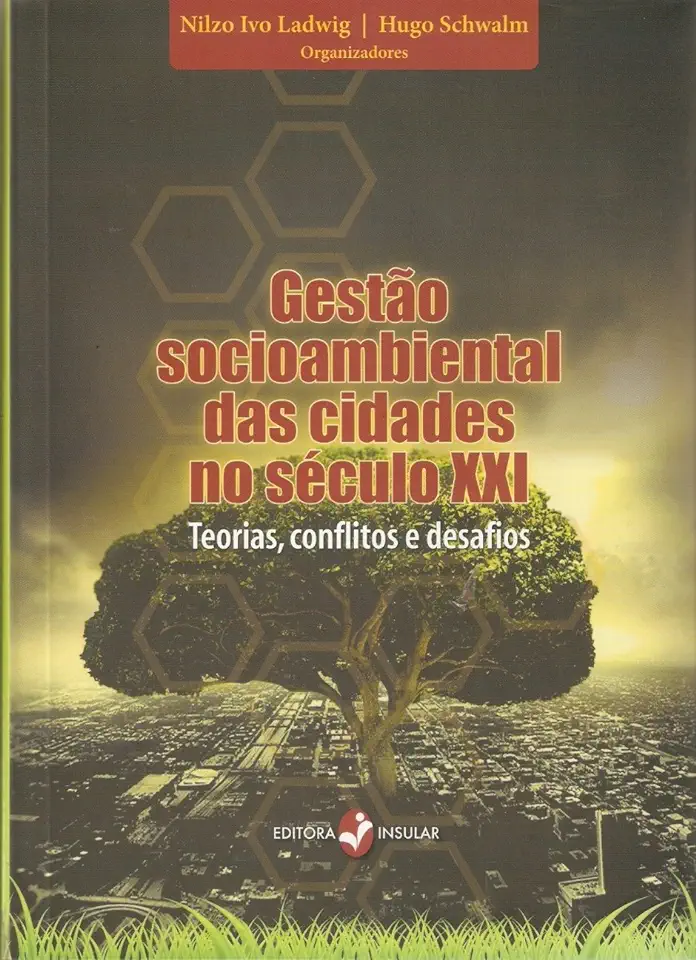
Socioenvironmental Management of Cities in the 21st Century - Theories, Conflicts and Challenges - Nilzo Ivo Ladwig and Hugo Schwalm
Socioenvironmental Management of Cities in the 21st Century: Theories, Conflicts, and Challenges
A Comprehensive Guide to Sustainable Urban Development
In the 21st century, cities face unprecedented challenges in managing their socioenvironmental systems. Rapid urbanization, climate change, and economic inequality are just a few of the factors that are putting a strain on urban resources and infrastructure. To address these challenges, cities need to adopt sustainable development practices that balance economic growth with social equity and environmental protection.
Key Concepts and Theories
The book "Socioenvironmental Management of Cities in the 21st Century" provides a comprehensive overview of the key concepts and theories that underpin sustainable urban development. The book is divided into three parts:
- Part I: Theories and Concepts of Socioenvironmental Management
- Part II: Conflicts and Challenges in Socioenvironmental Management
- Part III: Strategies and Tools for Socioenvironmental Management
Part I: Theories and Concepts of Socioenvironmental Management
Part I of the book introduces the key concepts and theories that are essential for understanding sustainable urban development. These concepts include:
- Sustainable development: The concept of sustainable development is based on the idea that economic growth, social equity, and environmental protection are interdependent and mutually reinforcing.
- Urban metabolism: Urban metabolism refers to the way in which cities use and transform energy, materials, and water.
- Resilience: Resilience is the ability of a city to withstand and recover from shocks and stresses.
- Adaptive capacity: Adaptive capacity is the ability of a city to learn from and adapt to changing conditions.
Part II: Conflicts and Challenges in Socioenvironmental Management
Part II of the book discusses the conflicts and challenges that cities face in implementing sustainable development practices. These conflicts include:
- The conflict between economic growth and environmental protection: Cities need to find ways to grow their economies without damaging the environment.
- The conflict between social equity and economic efficiency: Cities need to find ways to ensure that the benefits of economic growth are shared equitably by all residents.
- The conflict between local autonomy and global interdependence: Cities need to find ways to balance their local needs with the global challenges of climate change and economic inequality.
Part III: Strategies and Tools for Socioenvironmental Management
Part III of the book provides a detailed overview of the strategies and tools that cities can use to implement sustainable development practices. These strategies include:
- Land use planning: Land use planning can be used to create more compact, walkable, and mixed-use cities.
- Transportation planning: Transportation planning can be used to reduce traffic congestion, air pollution, and greenhouse gas emissions.
- Water management: Water management can be used to ensure that cities have a reliable supply of clean water.
- Energy management: Energy management can be used to reduce energy consumption and greenhouse gas emissions.
- Waste management: Waste management can be used to reduce the amount of waste that is produced and to recycle and compost waste.
Conclusion
"Socioenvironmental Management of Cities in the 21st Century" is an essential resource for anyone who is interested in sustainable urban development. The book provides a comprehensive overview of the key concepts, theories, conflicts, and challenges that cities face in implementing sustainable development practices. The book also provides a detailed overview of the strategies and tools that cities can use to achieve sustainable development.
Why You Should Buy This Book
If you are interested in sustainable urban development, then you need to buy this book. This book will provide you with the knowledge and tools you need to make a difference in your city. With its comprehensive coverage of key concepts, theories, conflicts, challenges, and strategies, this book is an essential resource for anyone who wants to create a more sustainable future for our cities.